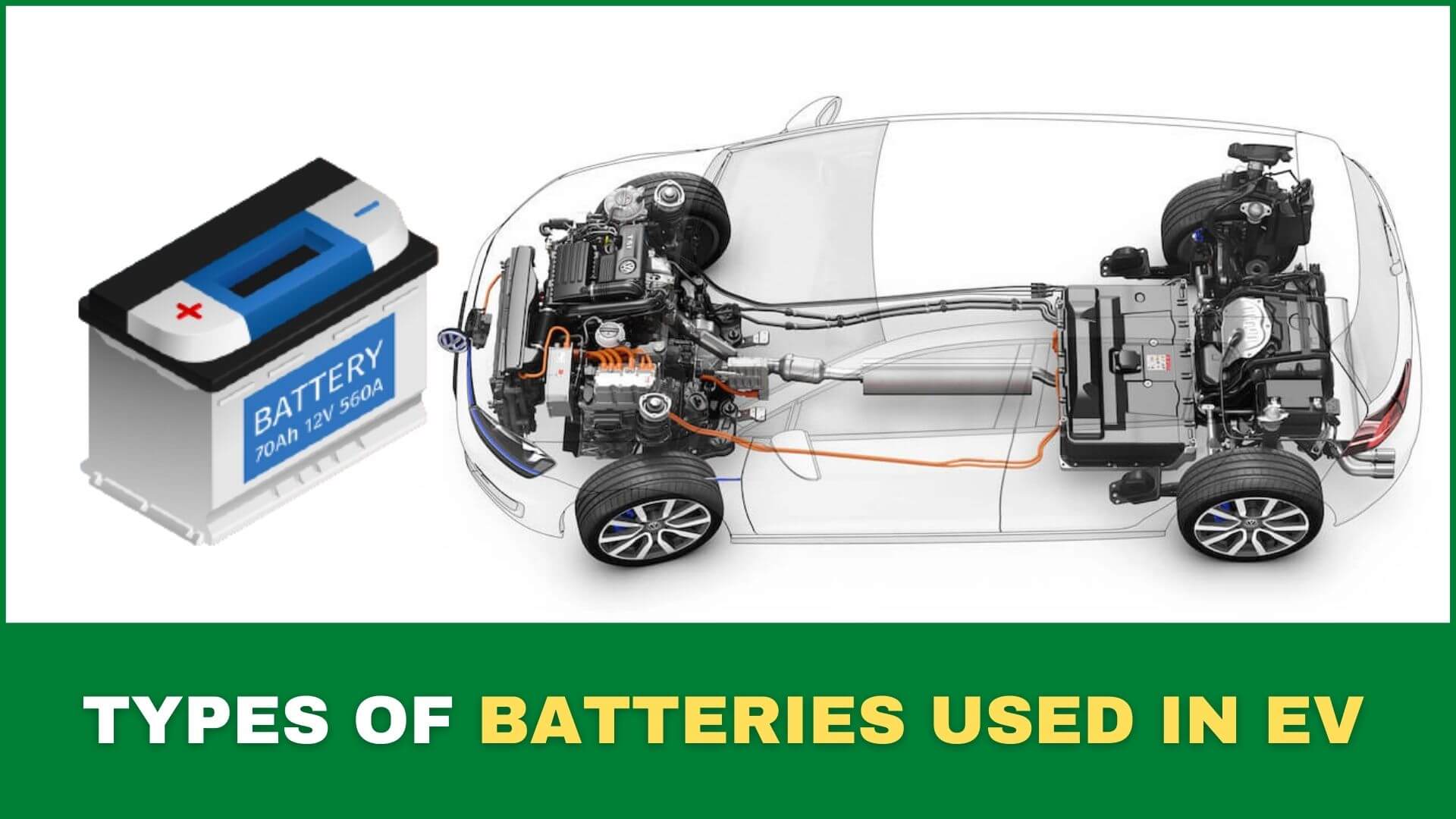
When it comes to electric vehicles, the most important thing that comes to our mind is electric storage or Battery. Here in this article What are the types of energy storage and types of batteries used in electric vehicles in India?
Due to the limitations of oil, automotive industries are developing alternatives to fuel vehicles. Out of all the possible solutions that don’t use petroleum, electric vehicles have become the most viable option. When electric vehicles are concerned, the most important thing that comes to our mind is electric storage.
What is Energy Storage?
Simply, energy storage is the device in which it stores, delivers- in terms of discharge, and accepts- in terms of charging the energy. Energy storage systems are essential for electric vehicles, which come in the form of different types of batteries. Battery type can vary depending on the type of vehicle whether the vehicle is a battery-electric or a plug-in hybrid electric.
There are some requirements and factors which should be fulfilled in an automotive application such as an ideal battery like specific energy and power, energy density, self-discharging rate, operating temperature, number of the life cycle, efficiency, cost, and environmental adaption.
As we have seen, most electric vehicles use one type of battery but there are also other different types of batteries that have been proposed for electric vehicles.
Table of Contents
Types of Batteries Used in Electric Vehicles
There are 4 types of batteries that are used as energy storage in electric vehicles, mainly including-
⦁ Lithium-ion batteries
⦁ Lead-acid batteries
⦁ Nickel- Metal Hydride batteries
⦁ Ultracapacitors
Lithium-ion Batteries
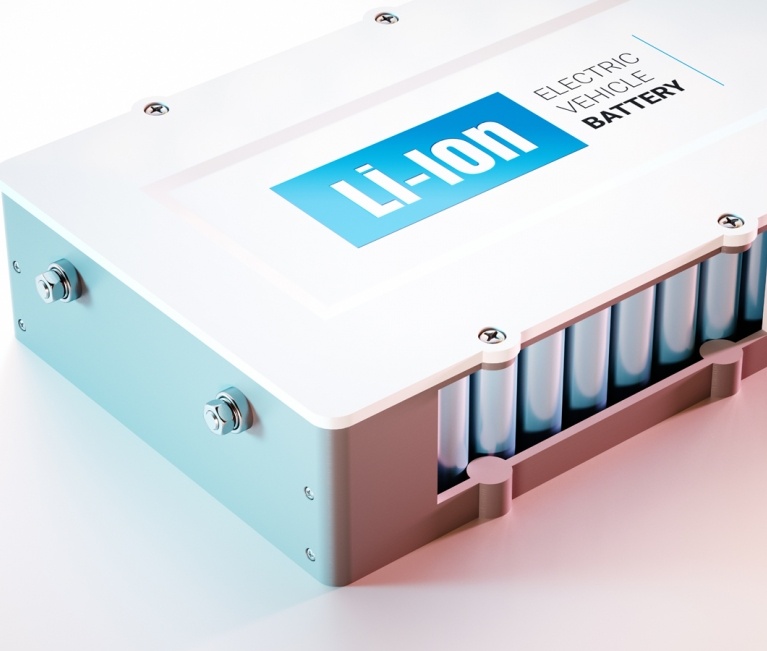
Over recent years, Lithium-ion batteries have rushed in popularity. Li-ion batteries are most commonly used in electric light motor vehicles because of their high power-to-weight ratio, good high-temperature performance, excellent specific energy, and low self-discharge rate.
Read More- Top 5 Potential Battery Technology to Fuel the EV Industry
Lithium-ion batteries are better than other batteries at maintaining the ability to hold a full charge over time. These battery parts are recyclable so it is a good option regarding the environmental aspect. They have long cycle life even they support higher energy costs, exceptional power efficiency, longer service life, and eco-friendliness.
They are designed to be discharged up to 90% of total capacity.
Li-ion batteries-based cars give better mileage due to their lightweight. A car has to overcome its inertia. When someone has to accelerate the car from zero, lithium-ion can better propel the vehicle and can discharge faster and supply more power, which is very beneficial for HEV.
Lead-acid batteries
Lead-acid battery technology is still in the development phase advancing. These batteries have a comparatively wide operating temperature range and have low energy density. They are easier to recycle. About 95% of the content of the battery can be reused, which is better for the environment.
Lead-acid batteries have a relatively low depth of discharge so it directly impacts their cycle life. These batteries tend to be expensive because they don’t last as long so they often need to be replaced within 4 to 15 years depending on their type.
Lead-acid batteries do not discharge more than 30-40%. Which typically go on to damage the battery.
Nickel- Metal Hydride Batteries
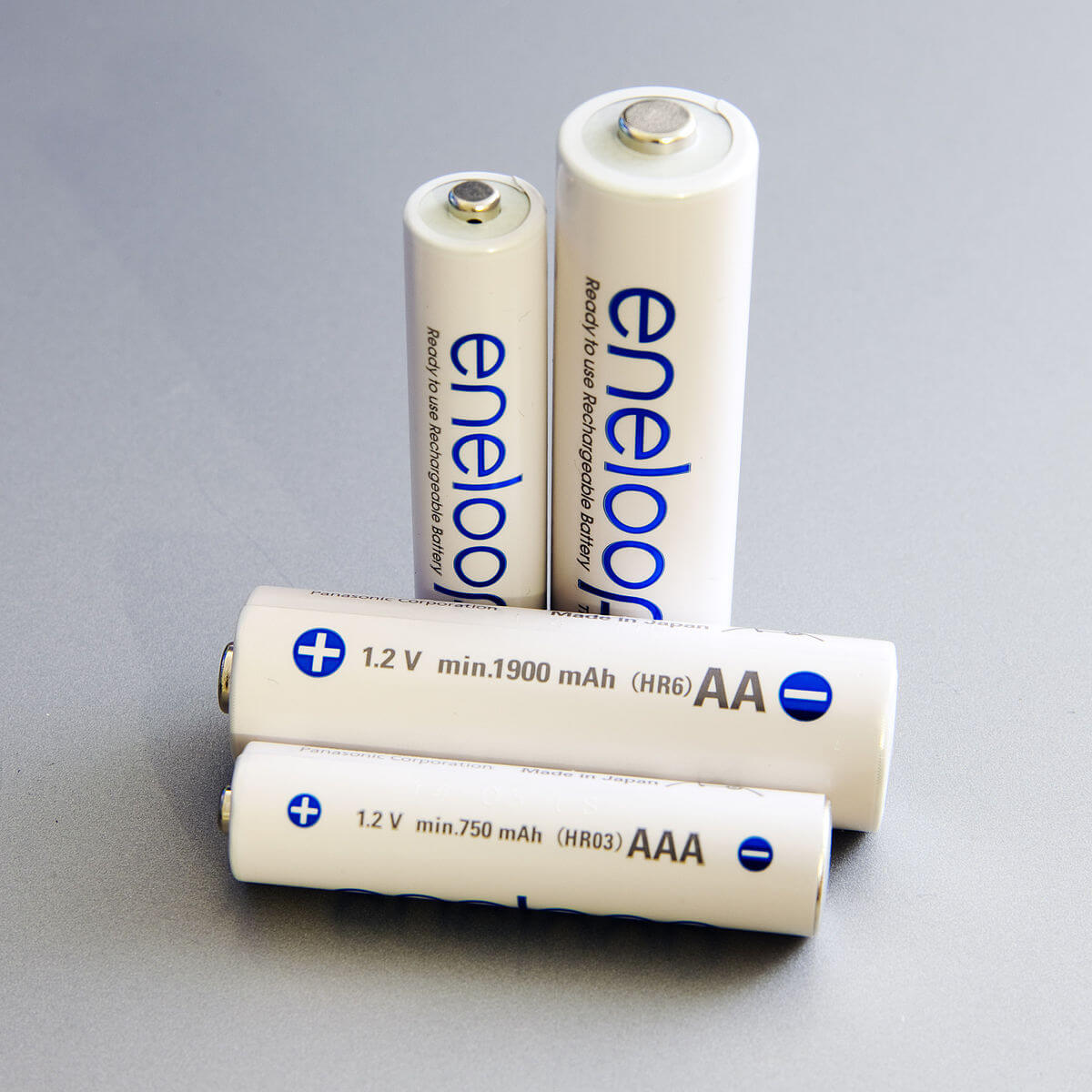
In a Nickel-Metal Hydride battery, one pole has Nickel alloy whereas another pole has Nickel oxyhydroxide with the electrolyte of Potassium hydroxide. It is usually slower to charge and discharge the battery, and it contains less power per weight so it takes a longer time to charge the battery.
In extreme heat Ni-MH batteries can deteriorate faster. This makes Ni-MH less ideal. These batteries have a wide operating temperature range. They are also reliable and safe. Ni-MH batteries have a typical cycle life of over 3000 cycles. They are environmentally friendly. The voltage provided by Ni-MH is 1.2 V. This technology has replaced Ni-Cud technology.
These batteries are widely used in automotive batteries, computers, medical instruments as well as equipment, and electric razors.
Ultracapacitors
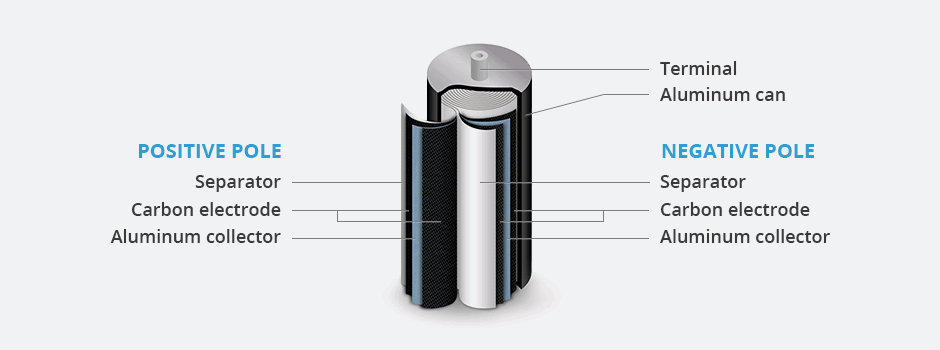
Ultracapacitors in Electric Vehicles– Unlike batteries, Ultracapacitors hold the charge as static energy. They can provide a higher current so they have a far higher specific power. Ultracapacitors don’t have any heating problems.
The main advantage of ultracapacitors is that they can do millions of charging cycles. They are already used in multiple applications for instance in buses, trains, and microgrids. Nevertheless, these technologies will continue to improve and over time we might see changes in electric vehicles.
Battery electric vehicles have become a significantly feasible option in the automotive marketplace for consumers. Having a low self-discharge rate, and outstanding specific energy, it appears that variants of Li-ion batteries are now the leading type that is mostly utilized in BEVs.
Meanwhile, lead-acid and Ni-MH batteries do not appear to be suitable for use, though these batteries are still frequently utilized in some electric vehicles.
Lithium-ion battery.
Cylindrical lithium-ion battery cells, NCA (Nickel-Cobalt-Aluminum) and LFP (lithium-iron-phosphate) battery cells.
Exide Industries, Amara Raja Batteries, Panasonic, Tata Group.
Lead Acid, Nickel Cadmium (NiCd), Nickel Metal Hydride (NiMH), and Lithium ion
Lithium-ion batteries have a high power-to-weight ratio, high energy efficiency, and good high-temperature performance.
Lithium-ion batteries have a high power-to-weight ratio, high energy efficiency, and good high-temperature performance.

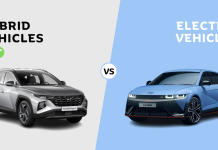
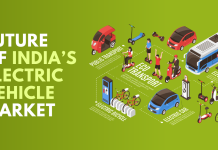
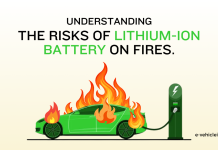



The asynchronous Motors to IE4 or IE5 are highly efficient and more reliable as compared to others. They are cost-effective and sustainable, long life for a wide temperature range. These are being mass-produced in India. For the same Power rating, these may be lighter in weight. It does not require any high-cost Imported Magnets.
With Electronic VFD these Motors are as good as DC Motors. I shall be willing to discuss the subject.